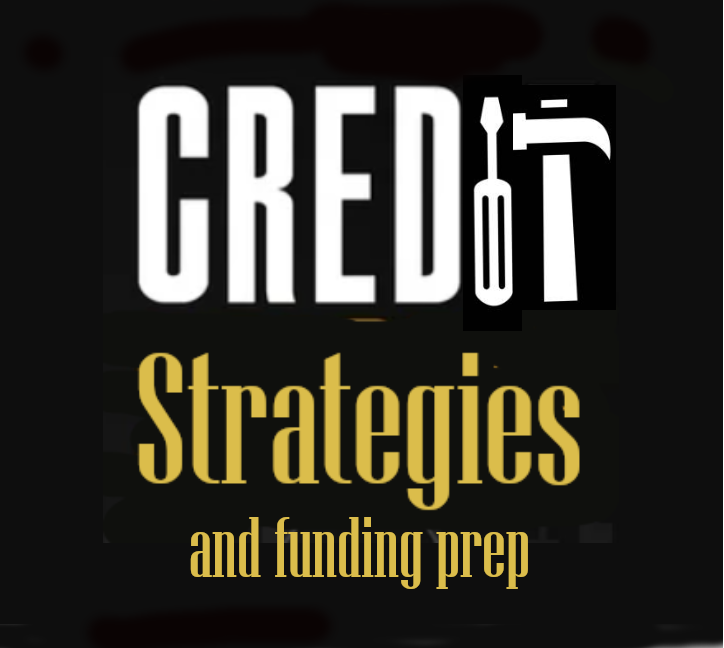Credit Strategies
and Funding Prep
What they don’t want YOU to know!
We offer a FREE Program if you have …
- A low Credit Score, Late Payments, Collection, Bankruptcy, more!
- A Need for Business Funding
- OR Just want an education.
LET US HELP!
We do NOT share your data!
We are NOT a Debt Management, Settlement or Consolidation program 🔗 (Compared) – because there’s nothing they can do that you can’t do using our FREE, Proven DIY Credit Strategies program.
WHAT WE DO…
Credit Strategies
Unlock the secrets of credit repair with our expert-backed program! Created with attorneys and former collection agents, our Free DIY Kit shows you how to fix late payments, collections🔗 (99% Of Collections Are Illegal!), bankruptcies, and more—or let us do it for you!
Check out our appearance on the MaryAnn Show for more info!
Business Funding
Bonus: When your credit score reaches 680 or higher, we’ll show you how to leverage it for business funding, real estate deals, new ventures, or even how to start your own Credit Strategies business, helping others while boosting your own income!
Click HERE for
Why Fix Your Credit NOW?

Why use our proven Credit Strategies program?
1) You can take control by using our proven strategies to fix/repair your own credit. If you don’t have the time, we’ll do it for you, where we’ll work with you one on one and explain every step along the way.
2) We’ll teach you how to start a business using these strategies to fix other people’s credit and make a really good income, from home, very quickly OR create and fund any other business. We give you everything you need for just a very small investment!
3) You’ll learn how to obtain and use business credit, once your credit score reaches 680, to obtain unsecured credit to buy real estate and other businesses – actually building your wealth.
No other program has all three offerings!
When all you get is bad advice?
if you look up what to do when you have bad credit, you get things like Pay Your Bills on time, Pay Down Your Debt, even file Bankruptcy or get a Debt Management Plan.
To find out what you can really do to help, READ MORE…
Why Not the Alternatives?
Bankruptcy
Your attorney will tell you to file bankruptcy, then you don’t have to worry anymore – once you pay the attorney fees, but this will stay on your credit reports for at least 10 years, plus there are some bureaus that insurance and other potential creditors use that keep it forever. Did you know that a bankruptcy can even increase your cost of insurance?
NOTE: Bankruptcy will close ALL your unsecured accounts.
NOTE: Chapter 7 Bankruptcy laws have changed where they can force you to sell assets to pay back creditors.

With Bankruptcy and Debt Consolidation or Management Plans
You seriously want me to pay MORE
to make my bad credit LAST EVEN LONGER?
Debt Consolidation / Debt Management Plans
Here’s how it works:
You make a payment, based on your income, every two weeks until your debt is paid off. If you’ve had an unexpected event and have less or no income, this won’t work for you because if you aren’t consistent in making those payments, they can add on late fees, higher interest rates and a longer term.
These programs can take months before they do anything at all – you have to first pay in enough for them to pay off any debt, so you could have done what they claim they will do. And at the end, it goes on your credit report that you paid at a discount, which doesn’t go away for 7 years.
NOTE: This will close ALL your unsecured accounts – they often lie about this.
⚠️ BEWARE! There are many scams with this type of business on the internet!
Read More…
" I never expected to have a routine hip replacement turn in to a permanent disability - I could not return to my previous position. My credit was going bad FAST but the Credit Strategies Program helped me get things under control."
" I didn't believe their program would work but they showed me how it had worked for them and many others and now I have already seen a sharp rise in my credit score."
"The Credit Strategies System is absolutely unbelievable. Not only did they help get my credit score to a reasonable high, they provided me a business opportunity that is helping me create wealth."
"The system they use provided me with a new business opportunity where I can work from home, do very little sales and marketing, and make a really good profit within a few hours a week. Everything is provided!"
